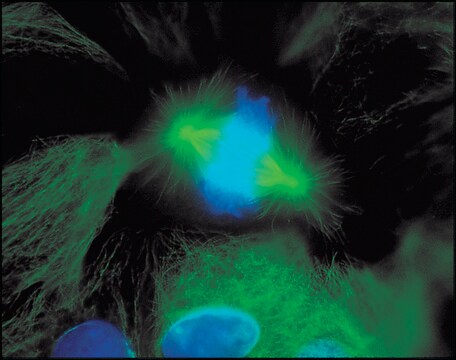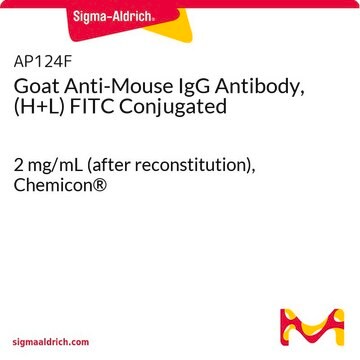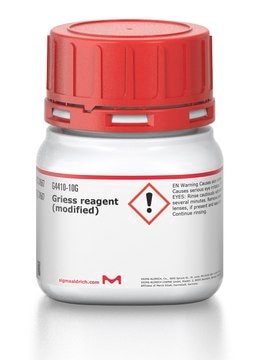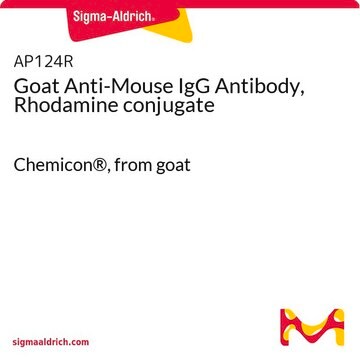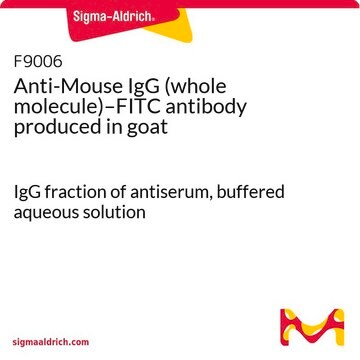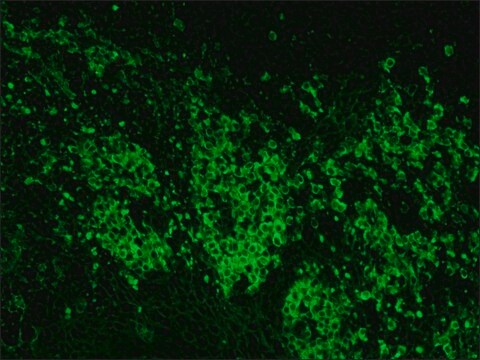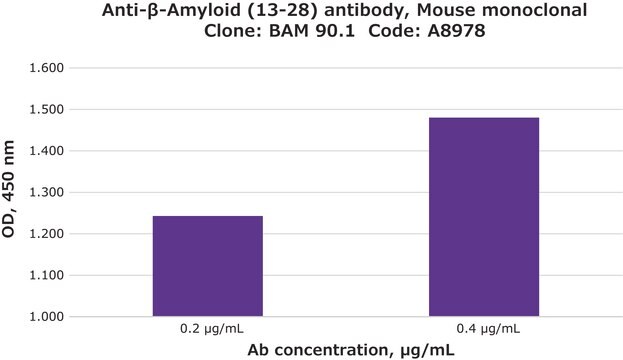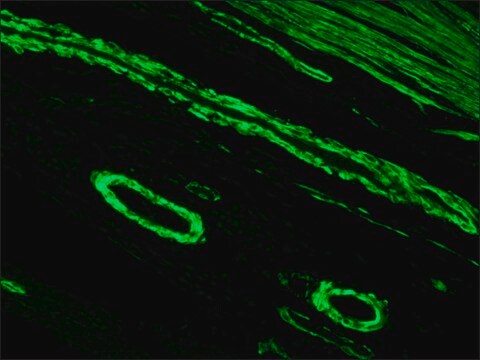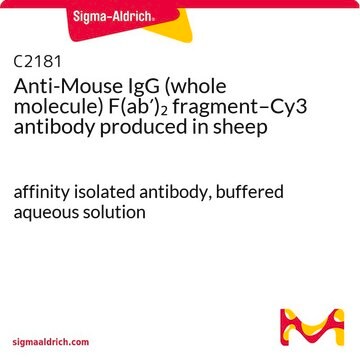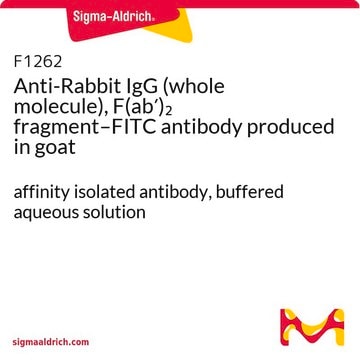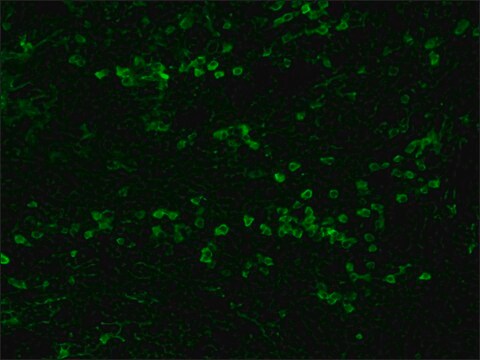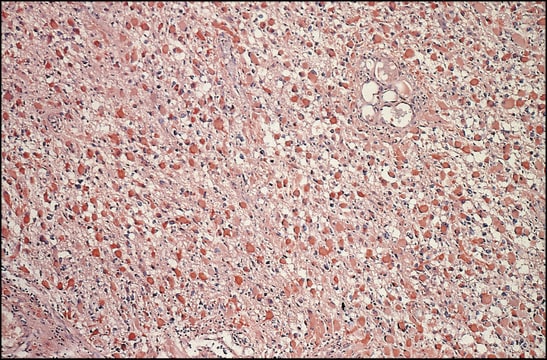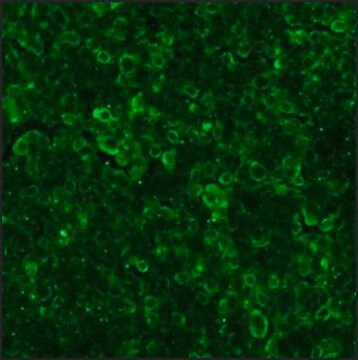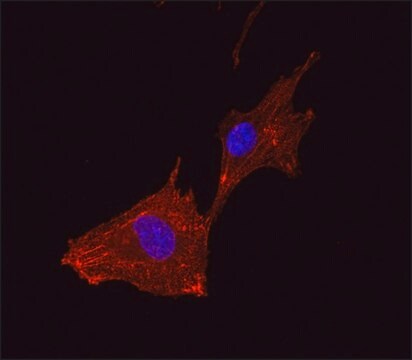F9137
Anti-Mouse IgG (whole molecule)−FITC antibody produced in rabbit
IgG fraction of antiserum, buffered aqueous solution
Synonym(s):
Rabbit Anti-Mouse IgG (whole molecule)−Fluorescein isothiocyanate
About This Item
Recommended Products
biological source
rabbit
Quality Level
conjugate
FITC conjugate
antibody form
IgG fraction of antiserum
antibody product type
secondary antibodies
clone
polyclonal
form
buffered aqueous solution
storage condition
protect from light
technique(s)
direct immunofluorescence: 1:100
immunohistochemistry (formalin-fixed, paraffin-embedded sections): 1:100
storage temp.
−20°C
target post-translational modification
unmodified
Looking for similar products? Visit Product Comparison Guide
General description
Specificity
Immunogen
Application
Anti-Mouse IgG (whole molecule)-FITC antibody has been used in immunofluorescence and cell proliferation assay.
Biochem/physiol Actions
Physical form
Storage and Stability
Disclaimer
Not finding the right product?
Try our Product Selector Tool.
Storage Class Code
10 - Combustible liquids
WGK
nwg
Personal Protective Equipment
Regulatory Listings
Regulatory Listings are mainly provided for chemical products. Only limited information can be provided here for non-chemical products. No entry means none of the components are listed. It is the user’s obligation to ensure the safe and legal use of the product.
JAN Code
F9137-1ML:
F9137-2ML:
F9137-VAR:
F9137-BULK:
F9137-.5ML:
Choose from one of the most recent versions:
Certificates of Analysis (COA)
Don't see the Right Version?
If you require a particular version, you can look up a specific certificate by the Lot or Batch number.
Already Own This Product?
Find documentation for the products that you have recently purchased in the Document Library.
Customers Also Viewed
Our team of scientists has experience in all areas of research including Life Science, Material Science, Chemical Synthesis, Chromatography, Analytical and many others.
Contact Technical Service